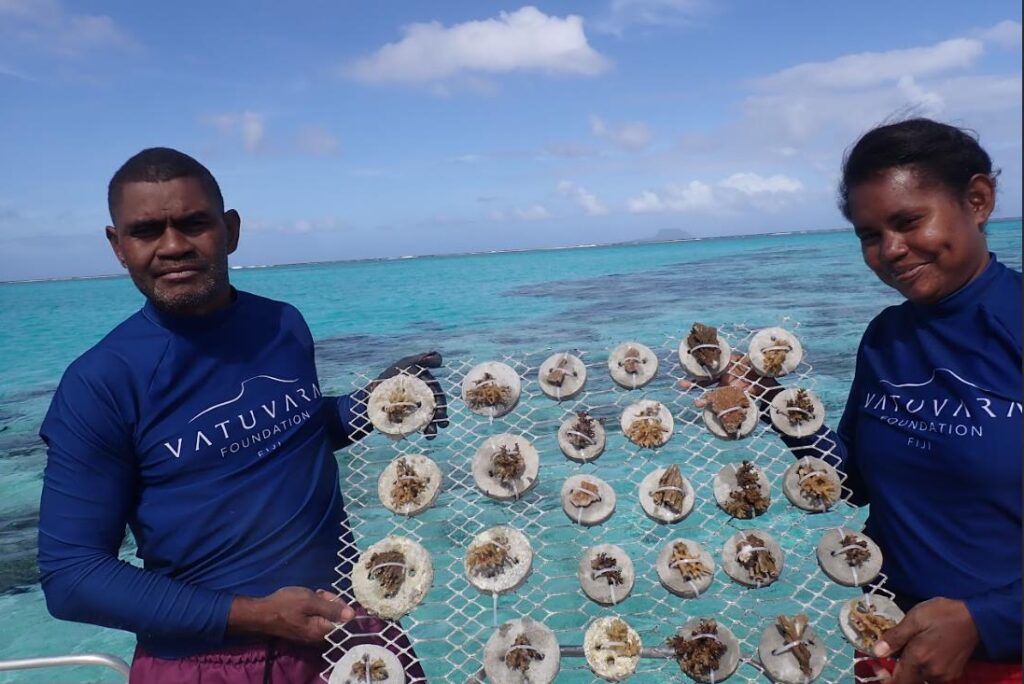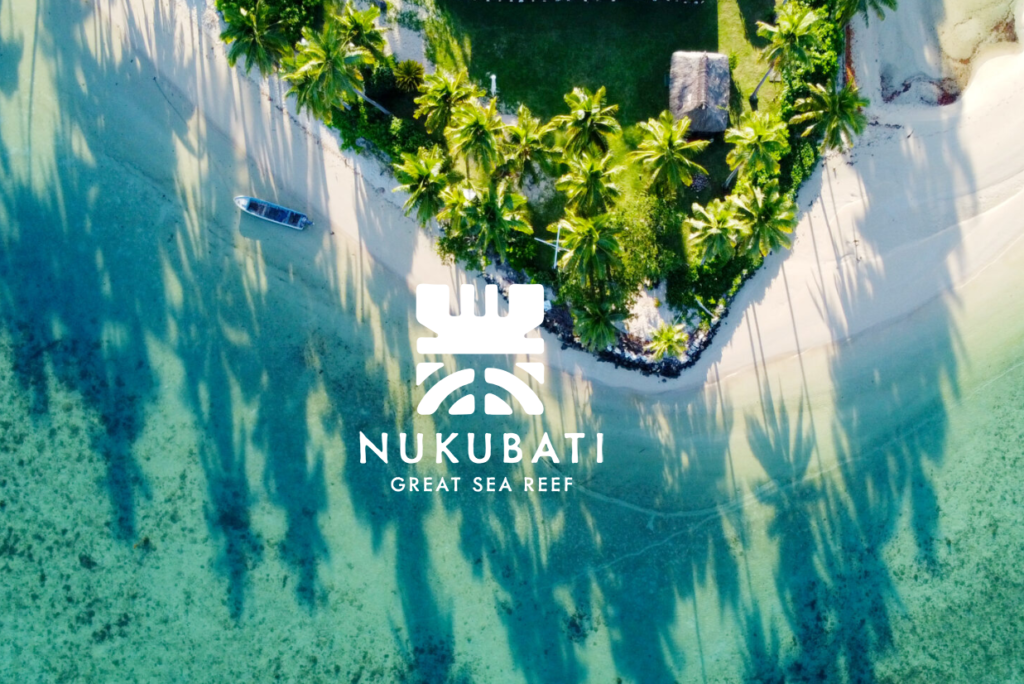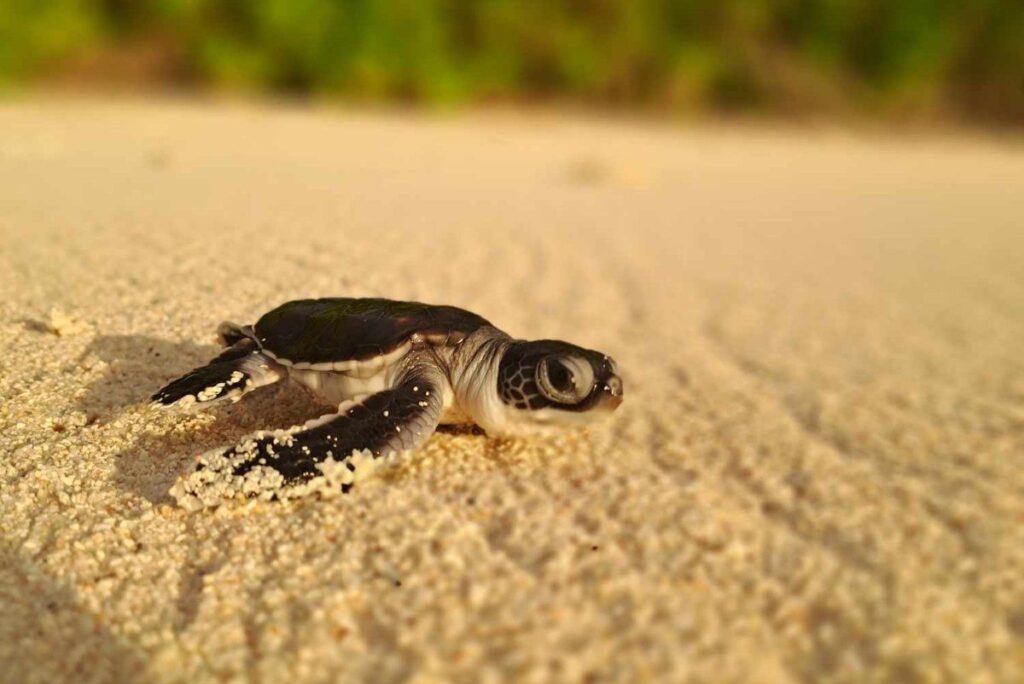The Lau group of islands is one of Fiji’s priority marine ecoregions, globally important due to its uniqueness, endemism, and high level of diversity.
Experience Nukubati, Fiji’s first carbon-negative island resort on the Great Sea Reef. Powered entirely by solar energy, this secluded paradise offers world-class diving, barefoot luxury, and authentic Fijian hospitality where sustainability and romance flow naturally together.
Four out of seven of the world's marine turtle species have been documented in Fiji waters, the critically endangered hawksbill turtles and endangered green turtles are the most prevalent to nest and forage in the country. Photo: ©Vatuvara Foundation



